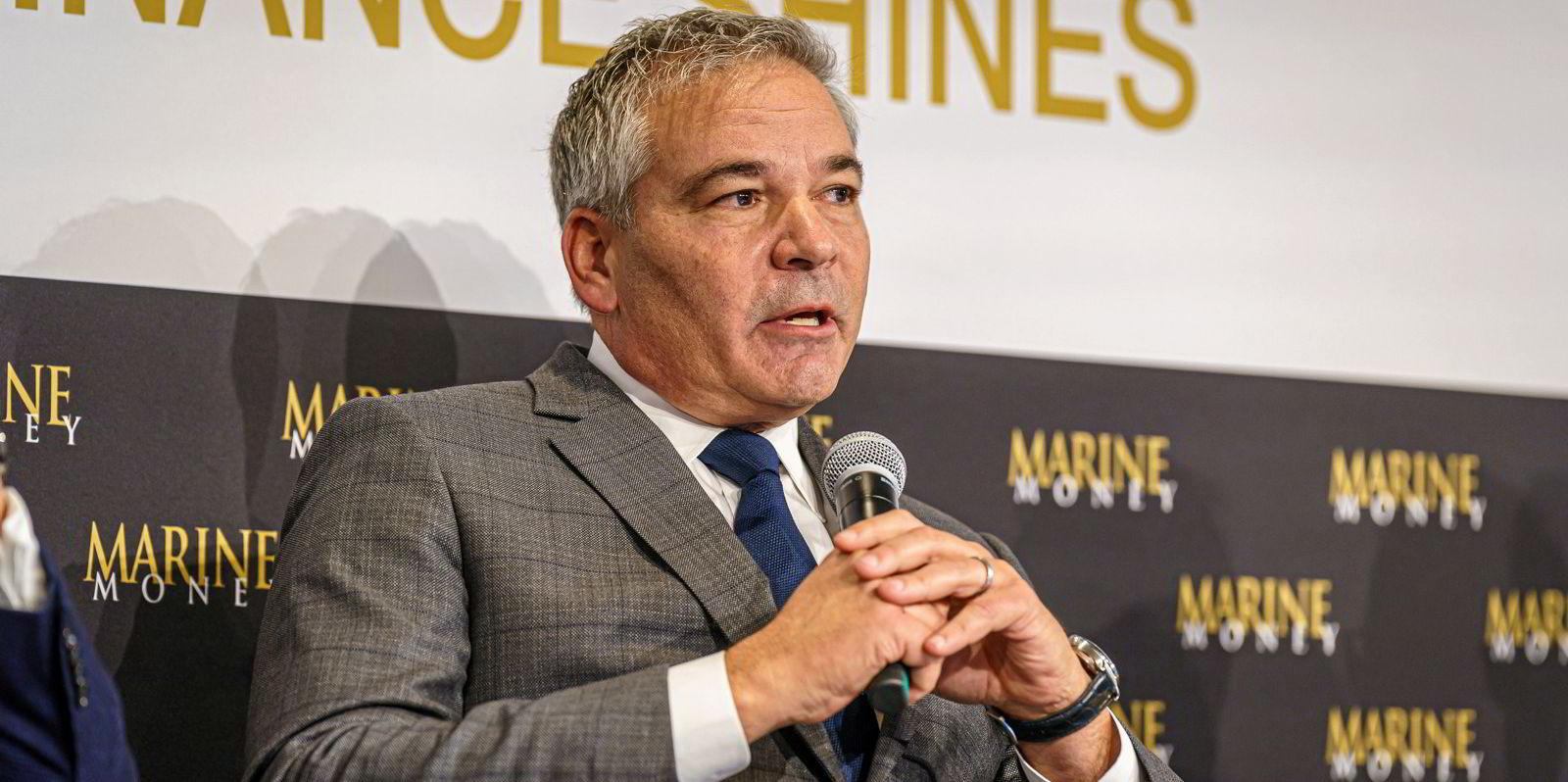“Just when I thought I was out, they pull me back in.” — Michael Corleone from The Godfather III
Godfather author Mario Puzo was a genius for crafting fiction that resonated with eternal human dilemmas.
And so we had to smile to ourselves at the recent news that Oaktree Capital Management is back as a 9.96% shareholder in Eagle Bulk Shipping.
This after Oaktree’s high-profile $219m sale of its entire 27.6% Eagle stake only last June, and the controversy surrounding it.
Sometimes letting go is more difficult than it appears.
Convertible notes are to blame. And they’re complicated, but Streetwise will try to explain these hybrid securities that sometimes confuse even the equity analysts following the New York-listed dry bulk outfit.
We’ll also take a look at what may be some of the nuances as Eagle shareholders prepare to vote on Star Bulk Carriers’ proposed $500m takeover of the Connecticut company, scheduled for 5 April.
Convertible notes act like bonds in that holders typically collect an interest coupon between the date of issuance and maturity.
In this case, Eagle issued $115m worth of the notes back in 2019 to underpin its acquisition of six ultramaxes and to help fund the installation of exhaust gas scrubbers.
Holders have been collecting 5% interest per year ahead of scheduled maturity this August. As is the case in convertible deals, the company will have the option to redeem the notes in newly issued shares or to pay them off in cash. Thus the “hybrid” nature of the securities.
Broader implications
Now before we stumble too much deeper into the weeds, let’s stop and examine a few things.
Howard Marks-led Oaktree is redeeming its notes six months before the August maturity. That means it is essentially forfeiting six months of interest on the notes, or 2.5%. It receives 1.1m shares.
By our calculation, Oaktree is giving up about $900,000 in interest payments to hold the shares now. While that’s not all the money in the world, we’ve also not known Oaktree to walk away from cash, so what gives?
The most obvious answer is that Oaktree wants to vote on the Star-Eagle combination. One might also conclude that in issuing shares rather than cash, Eagle wants Oaktree to vote as well.
While we can’t say for sure, it stands to reason that Oaktree would vote in favour. After all, besides being a longtime financial supporter of Eagle, it has held the same status in Star. The Greek owner also has been buying Oaktree shares, but the investor is still its largest holder at 17.2%.
If Oaktree is putting its muscle behind the Star takeover, does that mean the vote might be tighter than has been generally assumed?
At a minimum, it’s another intriguing question. Eagle’s largest holders at last filings are two fellow shipholders: Greece’s Danaos Corp at 16.7% and Cyprus-based Castor Maritime at 14.99%. While it’s not known how they feel about Star’s takeover, together they control about one-third of the vote.
That may be a dynamic to watch, but let’s get back to the convertibles more generally.
The nuances
There are currently about $70m worth of notes outstanding. This takes into account the Oaktree redemption and Eagle’s decision to repurchase $10m of the securities in 2022.
They are considered deeply “in the money”. This means that with a conversion price set at the time of the deal at $31.62, and Eagle shares currently trading around $58, the notes are currently valued at approximately 180% above their par value.
A couple of takeaways there: Eagle shares have traded well since the 2019 issuance, and whether it’s Eagle redeeming the notes or, rather, Star after the takeover vote, the convertibles are likely to be settled in shares rather than cash because of the steep premium.
For early redemptions, management has the choice, however, of how to pay. Come May, the company will need to set its policy for the August maturity, under which all holders get the same treatment.

Some won’t be sad to see the convertibles go, not least the journalists and equity analysts trying to follow the company’s financial results. These have been reported each quarter based on the actual outstanding Eagle shares, as well as on a diluted basis, as though every holder had converted their holdings into shares.
One bank researcher admitted to us last autumn that he botched his projection of an earnings loss for the Stamford-based company because he counted the notes as shares when he shouldn’t have.
Or was it the other way around? Who can keep track?
Why did Eagle go to all this trouble then? Why not just sell bonds or issue equity? Well, that’s where the appeal of the convertibles surfaces.
Eagle stock was trading around net asset value back in 2019 and it probably could have raised about $50m in an equity deal. Instead, it sold at a 30% premium to its prevailing share price, and including other factors pulled in $115m. So the notes were worth it. A pain in the stern, but worth it.
Still, they can’t seem to go away quietly. Last week, hedge fund Walleye Capital made a filing with US securities regulators revealing a 5.4% stake in Eagle based on the notes it held being converted to equity.
This week, the Minnesota fund effectively issued a correction: given Eagle’s right to pay in cash, it cannot claim to be the beneficial owner of any Eagle shares.
Walleye, we feel your pain. But unlike Oaktree and Michael Corleone, you’re not in yet.
More ship finance news
Ardmore Shipping director Mats Berglund has boosted his bank balance through a sale of the company’s stock, offloading 10,000 shares this week in the Irish tanker owner. Click here to read.
US tanker owner International Seaways has accepted the resignation of board member Nadim Qureshi, the former chairman of Diamond S Shipping, who left with immediate effect on Monday. Click here to read.
It was a different year and a different vibe for Ardmore Shipping at the product tanker owner’s annual investor day in New York last week, but still a good place to be. Click here to read.





